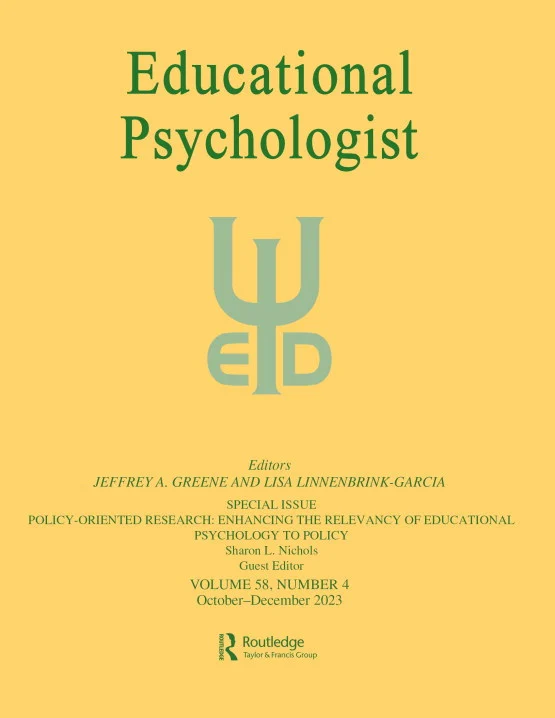研究自我效能:一个元分析
IF 11.4
1区 心理学
Q1 EDUCATION & EDUCATIONAL RESEARCH
引用次数: 13
摘要
研究自我效能是社会认知自我效能概念对学术和科学研究领域的适应,是成功从事研究活动的最佳预测因素之一。本meta分析的重点是研究自我效能感与社会认知职业理论提出的其他14个相关变量之间的关系,并分析了1989年至2020年间发表和未发表的85项研究(n = 17,754, 209个效应量)。研究结果表明,研究自我效能与研究兴趣、研究身份、从事研究职业的意图/目标、研究生产力、对研究的态度、研究培训环境和与导师的工作联盟之间存在较大的关联,与研究成果预期、荷兰的研究兴趣、研究焦虑和研究指导经历之间存在适度的关联,与博士学习年限之间存在较小的关联。研究自我效能感与参与者的性别和年龄没有显著的关系。我们的研究结果通过展示提高研究自我效能以改善研究培训和职业成果的方法来帮助教育工作者;研究结果表明,教育工作者的有效途径是选择具有研究性职业兴趣的学生,积极控制可能的研究焦虑,在研究小组中发展强大的研究导向文化,并与他们的学员建立指导和转化关系。本文章由计算机程序翻译,如有差异,请以英文原文为准。
Research self-efficacy: A meta-analysis
Abstract Research self-efficacy represents the adaptation of the social cognitive concept of self-efficacy to the field of academic and scientific research and is one of the best predictors of successfully engaging in research activities. The current meta-analysis focuses on the relationship between research self-efficacy and 14 other relevant variables suggested by Social Cognitive Career Theory and analyzes 85 published and unpublished studies conducted between 1989 and 2020 (n = 17,754, 209 effect sizes). The results indicate large associations between research self-efficacy and interest in research, research identity, intention/goals to pursue a career in research, research productivity, attitudes toward research, research training environment, and working alliance with the advisor, moderate associations with research outcome expectations, Holland’s investigative interests, research anxiety, and research mentoring experiences, as well as a small association with year in doctoral studies. There is no significant relationship between research self-efficacy and two other variables, gender and age of participants. Our findings help educators by showing ways through which to increase research self-efficacy in order to improve research training and career outcomes; the results suggest that effective routes for educators are the selection of students who have investigative vocational interests, an active control of possible research anxieties, development of a strong research-oriented culture in the research group and the development of a mentoring and transformational relationship with their trainees.
求助全文
通过发布文献求助,成功后即可免费获取论文全文。
去求助
来源期刊

Educational Psychologist
Multiple-
CiteScore
19.10
自引率
3.40%
发文量
16
期刊介绍:
The Educational Psychologist is a scholarly journal dedicated to exploring the psychology of learning and instruction. Articles in this journal encompass a diverse range of perspectives, from examining psychological mechanisms to exploring social and societal phenomena related to learning and instruction. The journal publishes theoretical and conceptual articles, as well as reviews and meta-analyses, that significantly contribute to theory or advance the methods used to explore educational psychology. Emphasizing innovation and advancing understanding, the journal does not publish articles solely reporting the methods and results of empirical studies; instead, all submissions, including reviews and meta-analyses, must offer clear implications for advancing theory. In addition to regular articles, the journal features special issues that delve into important themes in educational psychology, along with focal articles accompanied by peer commentary.
 求助内容:
求助内容: 应助结果提醒方式:
应助结果提醒方式:


